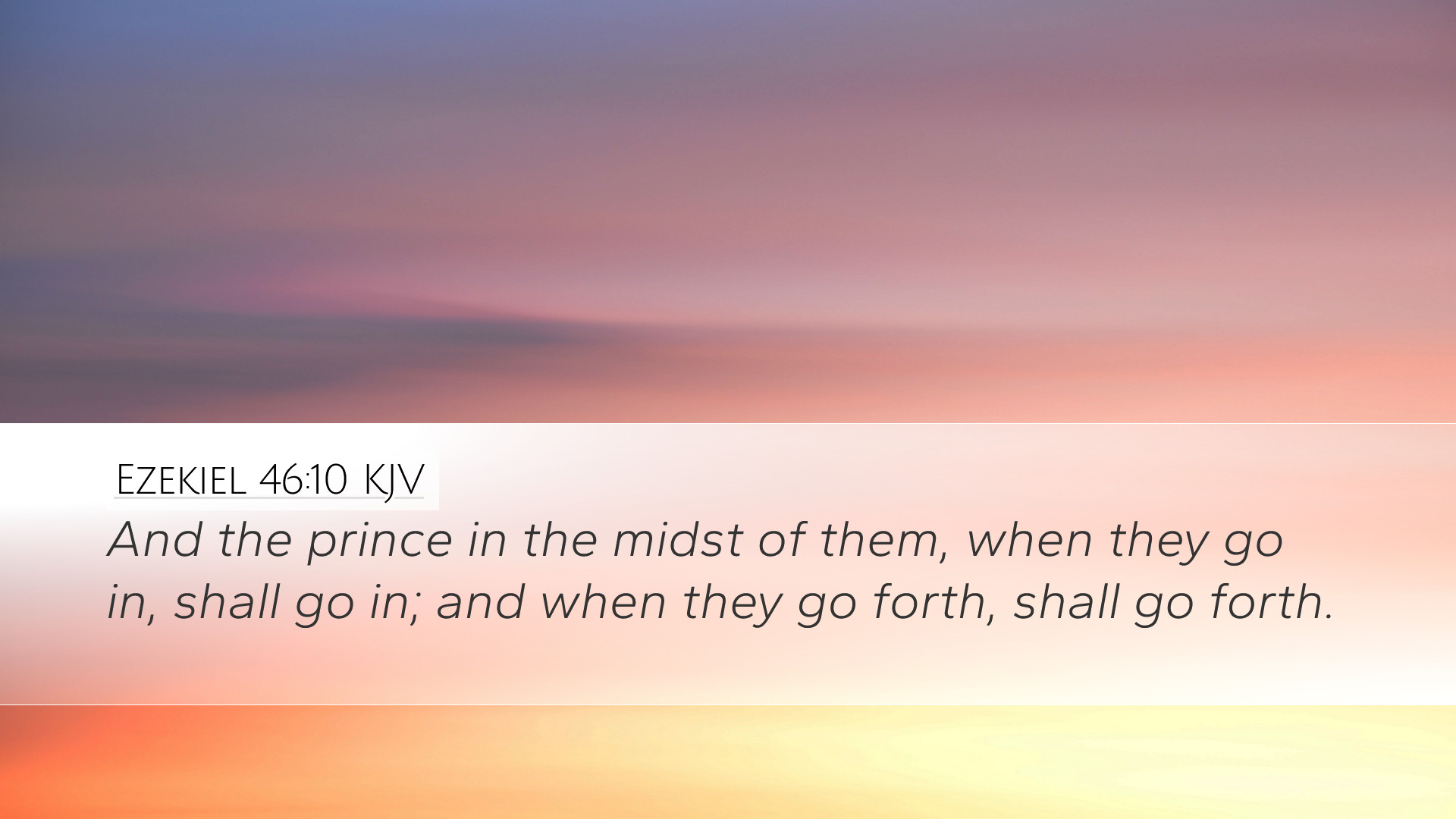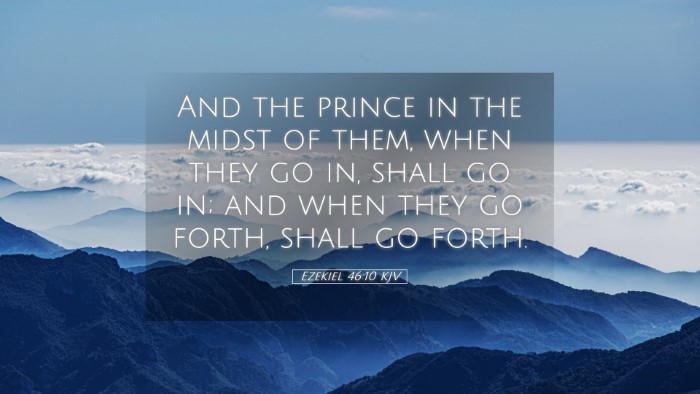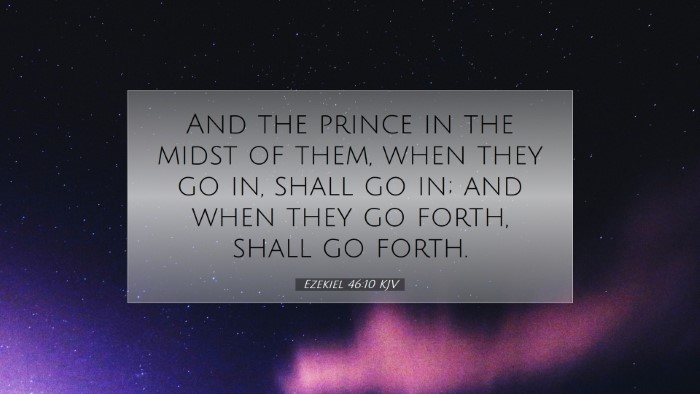Ezekiel 46:10 - Commentary Overview
Ezekiel 46:10 states: "And the prince shall enter by the way of the porch of that gate without, and shall stand by the post of the gate: and the priests shall prepare his burnt offering and his peace offerings, and he shall worship at the threshold of the gate: then he shall go forth; but the gate shall not be shut until the evening."
Contextual Understanding
This verse falls within the prophetic vision of the future temple in which Ezekiel describes the restoration of worship in Israel. Here, the role of the prince, likely a messianic figure or the leader of Israel, is highlighted as he participates in the sacrificial worship. The description of specific rituals and the architecture of the temple underscores the importance of worship and leadership in Israel’s religious life.
The Role of the Prince
Matthew Henry emphasizes the authority and responsibilities of the prince in the context of worship. Unlike previous rulers who may have indulged in abominations, this prince is portrayed as one who engages sincerely in worship. His act of standing at the gate suggests not only a physical presence but also a symbolic representation of leadership in spiritual matters.
Adam Clarke further elaborates on the nature of this prince's offerings, noting that his burnt offerings and peace offerings are indicative of a dedication to God and a desire for communal peace. The participation of the priests in this process reflects the collaborative nature of worship, which is vital to the health of Israel’s spiritual life.
The Significance of the Gate
The mention of the gate serves a crucial purpose in understanding the accessibility of worship. Albert Barnes points out that the gate symbolizes a threshold between the sacred and the secular, illustrating the need for reverence while facilitating access to God. The ritual practices occurring at the gate, including the prince's acts of worship, underline the holiness of the space.
The instruction that "the gate shall not be shut until the evening" can be interpreted as a sign of God’s ongoing presence throughout the day. Matthew Henry suggests that this reflects God’s unending mercy and the continuous opportunity for the people to approach Him in worship.
Worship Practiced
The act of worship performed by the prince at the threshold of the gate carries profound implications. It is both an individual acknowledgment of God's greatness and a communal act leading the people in recognizing their dependence on divine grace. Adam Clarke highlights that such public worship underlines the social aspect of faith, where actions reverberate through the fabric of the community.
Theological Implications
This scripture also opens discussions on the nature of worship. Albert Barnes presents a view that worship is not solely a private affair; it is meant to be practiced within a community. The prince's public worship serves to strengthen the nation’s relationship with God, acting as a mediator between God and His people.
Additionally, the symbolism prevalent in this passage foreshadows Christ’s eventual role as the true Prince, who would lead through humility and sacrifice. Matthew Henry notes, “The prince worships at the threshold, acknowledging his dependence on God’s grace,” which can be seen as a precursor to the New Testament understanding of Christ’s ultimate sacrifice.
Practical Application for Believers
For modern believers, Ezekiel 46:10 serves as a reminder of the importance of leading by example in worship. Leaders within the church are called to model a life of devotion and sincerity, just as the prince in this verse. Adam Clarke challenges church leaders to embody the spirit of worship, engaging in acts of service and sacrifice similar to the burnt and peace offerings described.
Additionally, the continued opening of the gate until evening emphasizes the ongoing invitation to approach God. Albert Barnes encourages believers to recognize that barriers to worship have been removed through Christ, who invites us to come to Him without fear or hesitation.
Conclusion
Ezekiel 46:10 encapsulates essential themes of leadership, community worship, and divine presence. By examining insights from Matthew Henry, Albert Barnes, and Adam Clarke, we gain a deeper understanding of how this passage speaks to the New Testament realities and challenges believers today to live a life of worship that invites others into relationship with God.


